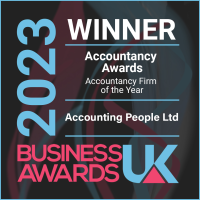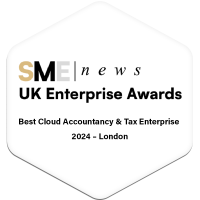If you run a limited company, understanding how to file a company’s tax return is essential. Even if you appoint an accountant to handle the process, knowing the basics will help you make smarter financial decisions, avoid costly penalties, and spot opportunities to reduce your tax bill.
This guide explains what a company tax return is, who must file one, the information you’ll need, and the deadlines you can’t afford to miss.
What is a Company Tax Return?
A company tax return is the submission your limited company makes to HMRC to declare its profits, tax liability, and supporting records.
The key form used is CT600, often referred to as the company tax return itself. Your submission usually includes:
- Company accounts (statutory accounts)
- Tax computations showing how taxable profits were calculated
- Supplementary pages for specific claims or reliefs
Who Needs to File a Company Tax Return?
- All limited companies must file a company tax return for each accounting period, unless HMRC has confirmed they are dormant.
- Clubs and voluntary groups that generate profits may also need to file, even if they are not companies.
- HMRC may issue a CT603 ‘Notice to Deliver’, but you are obliged to file even if you don’t receive one.
Failure to notify HMRC of taxable profits can result in penalties, depending on whether the omission is considered deliberate or accidental.
Do Sole Traders or Dormant Companies Need to File?
- Sole traders and partnerships
- Sole traders and partnerships do not file company tax returns, they pay income tax via self-assessment.
- Dormant companies
- Once you inform HMRC that your company has ceased trading and is no longer generating income from any source, you typically won’t need to submit further Company Tax Returns, unless HMRC specifically requests one. In some cases, HMRC may decide your business is dormant. If so, they’ll issue a formal letter confirming that your company no longer has corporation tax obligations and is not required to file tax returns.
Do You Need to File If You Made a Loss?
Yes, if your company is active (trading or receiving income), you must file a tax return, even if it made a loss.
Information Required to File a Company Tax Return
The CT600 company tax return form is only 12 pages long, and many parts apply only to specific industries or groups of companies.
For most small, single-director limited companies, a large portion of the form won’t be relevant. You’ll mainly need to focus on the initial sections.
Here’s what you’ll need to complete your company tax return online:
Login details: To file both your company tax return and annual accounts together online, you’ll need your Government Gateway user ID and password, along with your Companies House password and authentication code.
Disclaimer:
Please note that HMRC’s free Company Accounts and Tax Online (CATO) filing service will close after 31 March 2026, and from 1 April 2026, all CT600 returns, computations, and iXBRL accounts must be filed using HMRC-approved commercial software; past filings should be downloaded before the closure.
Company accounts:
Often called statutory accounts, these must include a balance sheet, a profit and loss statement, notes to the accounts, and a director’s report. They need to meet statutory standards and must be submitted in iXBRL (Inline eXtensible Business Reporting Language) format.
Company information:
In the first section of the CT600 form, you’ll enter details such as your company name, registration number, tax reference number, and the type of company you operate.
Return information:
The second section covers details about the return itself, such as whether you’re filing for one accounting period or several, if you’re using estimated figures, and whether you’re including your accounts, tax computations, or additional pages.
Tax calculation:
This part requires the figures behind your corporation tax liability, including turnover, income, chargeable gains, profits, deductions and reliefs, marginal relief eligibility, and your final corporation tax calculation.
Computations file:
The profit reported in your company accounts often differs from the taxable profit used for corporation tax. You’ll need to provide an iXBRL computations file showing how you reached your final taxable figure.
After the tax calculation section, the CT600 moves on to reliefs, allowances, losses, repayments, and overpayments that apply to specific industries or circumstances. You only need to complete these later parts and attach any relevant supplementary pages, if they apply to your business.
How to File a Company Tax Return
In most cases, limited companies are required to submit their company tax returns online, alongside filing their annual accounts with Companies House.
While paper filing is still an option, it’s only allowed under specific circumstances. HMRC accepts paper submissions if you have one of HMRC’s ‘reasonable excuse’, or if you choose to file your return in Welsh.
Deadlines for Filing
- Tax return (CT600): 12 months after the end of your accounting period.
- Corporation tax payment: Within 9 months and 1 day of your period end.
Important: Your first year may require two separate tax returns, as Companies House dates often don’t align with HMRC’s accounting periods.
Penalties for Late Filing
If you miss the deadline:
- 1 day late: £100 penalty
- 3 months late: Another £100 penalty
- 6 months late: HMRC estimates your tax bill and adds a 10% penalty
- 12 months late: A further 10% penalty
Repeat offenders (3 late returns in a row) see the £100 fines increased to £500.
Wrapping Up
Filing a company tax return is a legal requirement for all limited companies. While it’s possible to do it yourself, the process can be complex, especially when dealing with tax reliefs, computations, or multi-period filings.
At Accounting People Ltd, we specialise in preparing and filing company tax returns accurately and on time. We’ll ensure you stay compliant, avoid penalties, and make the most of any available tax-saving opportunities.
Need help with your company tax return? Contact Accounting People Ltd today and let us take the stress out of tax compliance.



